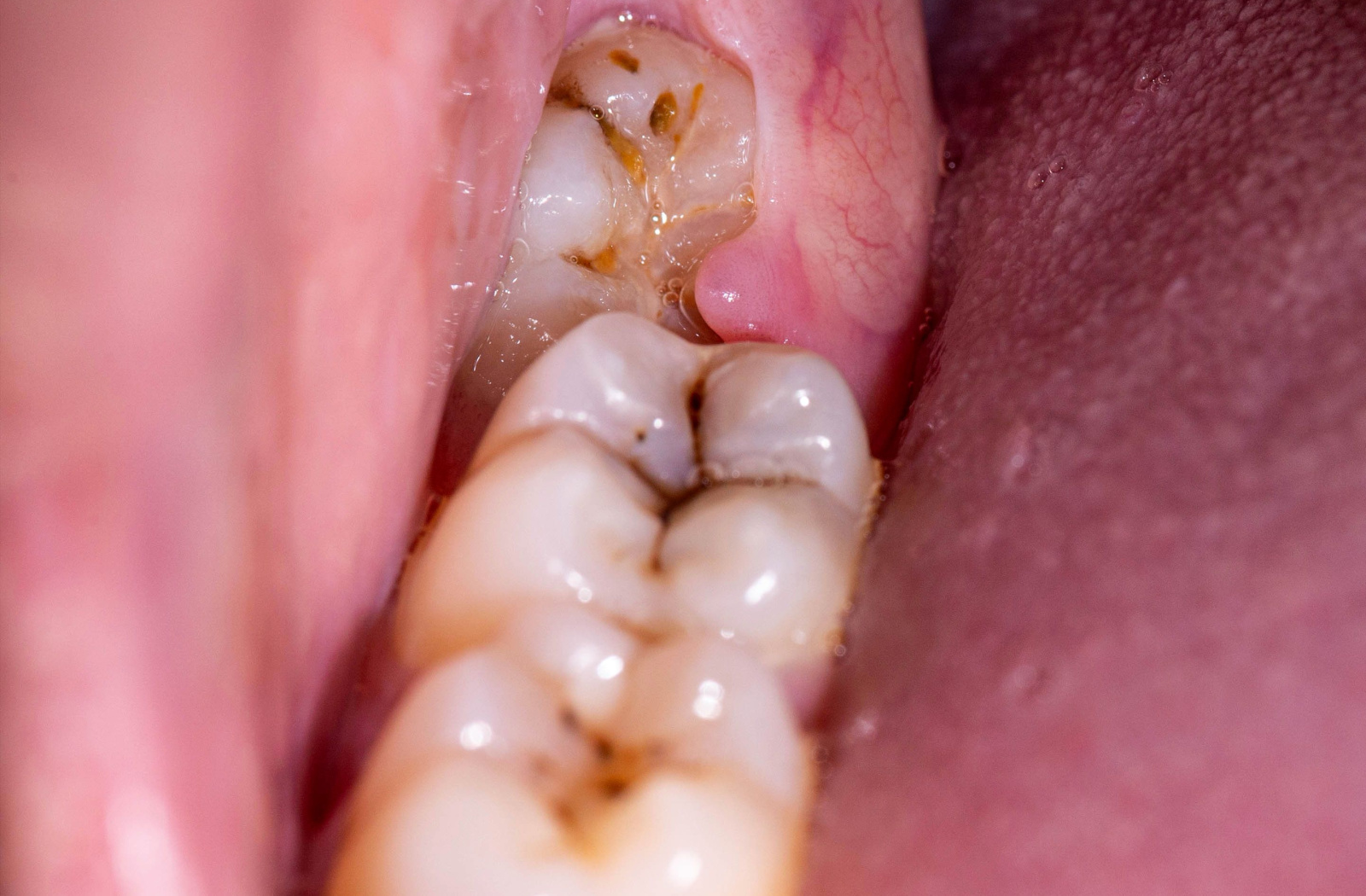Your third and final set of molars is called wisdom teeth because they come in last, when you’re more mature and wiser. However, if they start causing pain, you may wish you were a bit more ignorant.
You can’t go back in time, but your dentist can help by extracting impacted wisdom teeth. Good thing, too, because if left alone, wisdom teeth can cause lots of problems. A wisdom tooth can become infected and cause an abscess like any other tooth.
Your dentist will monitor how your wisdom teeth are coming in and look for signs of infection during a routine dental exam. Add another checkbox to the list of good reasons to visit the dentist!
What’s an Impacted Wisdom Tooth?
Wisdom teeth are the molars located at the back of your mouth. They usually come out in your late teens or early twenties. Interestingly, only some people have wisdom teeth, and others only have a partial set. One study suggested only 53% of the population have one or more wisdom teeth; the rest have none.
Even if you have these teeth, you may not experience any issues. However, if your wisdom teeth cause problems, it’s usually because they are impacted.
Do I Need My Wisdom Teeth?
Long ago, our ancestors probably used wisdom teeth to grind hard, raw food for digestion. Nowadays, we cook and tenderize our meals. Not only that, our jaws are smaller on average. All this adds up to a higher chance that your wisdom teeth could come in at awkward angles.
These angles can cause your wisdom teeth to push against your other teeth. In some cases, they may only erupt through your gums partially. It can be hard to clean a tooth that’s only partially exposed, meaning food gets trapped and causes infections and symptoms like:
- Jaw pain or swelling
- Trouble opening your mouth
- Persistent bad breath
- Red, swollen, or bleeding gums
- A lingering unpleasant taste

What’s a Tooth Abscess?
A tooth abscess is an infection that causes the accumulation of pus in the gums. An abscess usually starts as a tooth infection, but it can spread to the surrounding tissues and cause:
- Temperature sensitivity
- A swollen jaw
- A bitter taste
- Gum redness and swelling
- Bad breath
- A loose tooth
- Open sores on your gums
An impacted wisdom tooth commonly causes dental abscesses since they easily collect bacteria, but any tooth can abscess. Any issue that allows bacteria to grow, such as a crack or cavity, can increase your risk of an abscess.
The Dangers of Untreated Abscesses
Not only is a dental abscess painful, but if left untreated, it can spread into the soft tissue in your face or damage your jawbone. In extremely rare cases, it can even reach your heart or brain.
Treating abscesses is incredibly important for protecting your overall health. And even better, try to prevent abscesses before they develop.
How Is a Wisdom Tooth Abscess Treated?
When treating a dental abscess, your dentist will clear away the infection to reduce the risk of it returning. One way to do this is to cut into the abscess and drain the pus, followed by antibiotics to treat the infection. Another method is to provide an antibiotic if the dental abscess warrants the use of one.
We don’t really need our wisdom teeth. Often, the best way to treat or prevent an abscess is to remove your wisdom teeth before they cause problems. Surgery typically isn’t suggested if your wisdom teeth aren’t expected to cause complications.
Still, your dentist can monitor how your teeth are coming in during routine dental exams, which is one of the many reasons why the Canadian Dental Association (CDA) recommends check-ups every 6 months. If your dentist suspects your wisdom teeth could become a problem, they may recommend an extraction.
It’s better to remove wisdom teeth while children are young because the teeth haven’t had the time to fully grow their roots. Recovery time is also generally shorter as younger people tend to heal faster.
To Extract or Not To Extract, That Is the Question
Ultimately, the decision to remove your wisdom tooth is up to you. Still, it’s important to consider your dentist’s recommendation. An impacted wisdom tooth can lead to abscesses that cause severe pain, swelling, and open sores and can also lead to serious complications if left untreated.
At Marks Dentistry, we understand the thought of surgery can seem scary, but sometimes it’s necessary, and our trusted team is happy to be by your side, ensuring you know all steps along the way!
Don’t let a little problem grow into something unmanageable. Book an appointment today!




